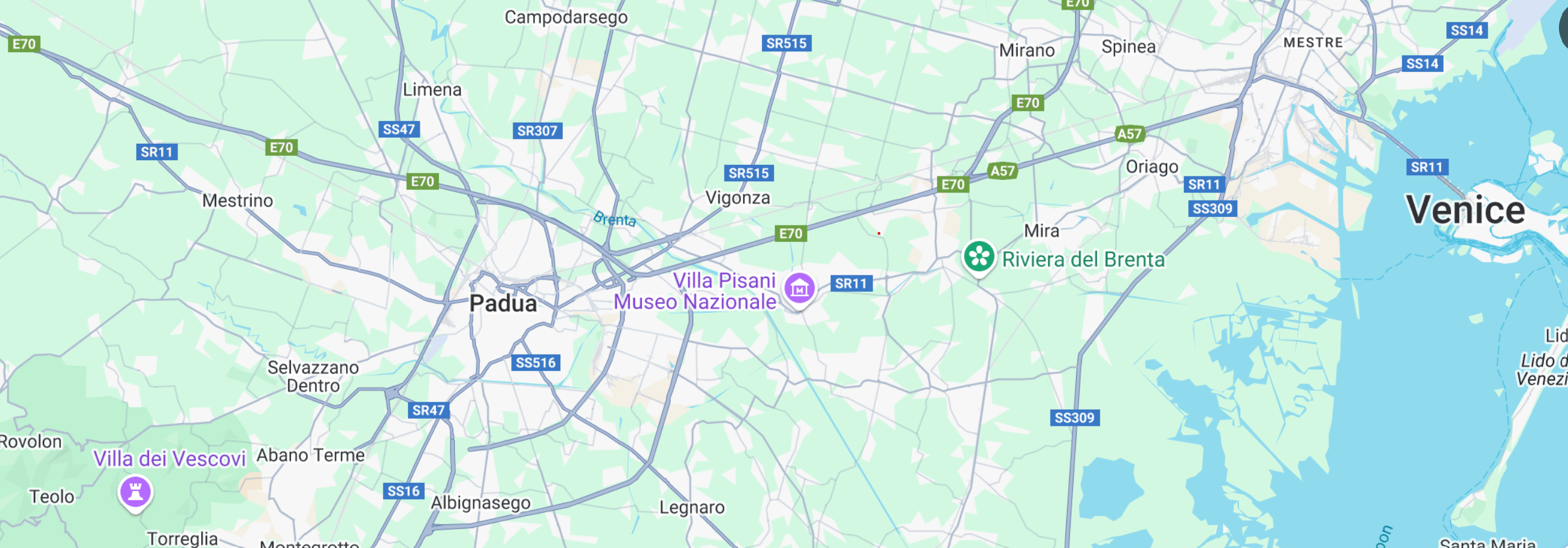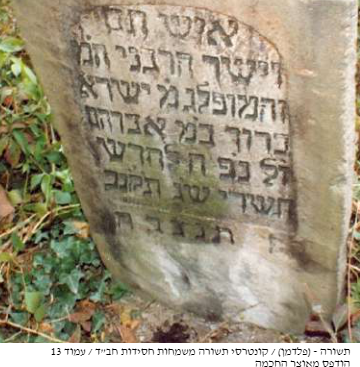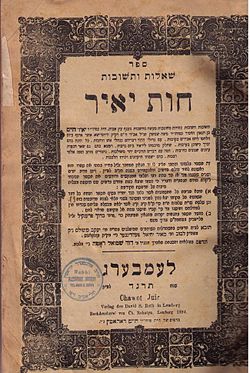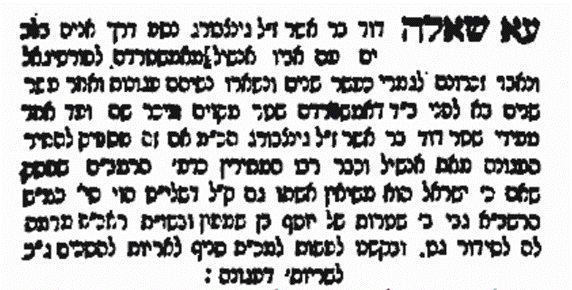BSD
Shkolim -14b (2) -15a
Tishrei 27, 5784. 10/29/2024
A Gezunten Vinter to All!

1- We concluded the ‘4 or 5 coupons‘ sold in the בית המקדש for people bringing קרבנות.
See final chart below.
2- We discussed that 3 of the coupons had the name of an animal. עֵגֶל זָכָר גְּדִי

However the fourth had the word חוֹטֵא , which was what the מצורע would purchase when he became טהור.
Psoriasis maybe?
The חפץ חיים makes note of this. Becoming a מצורע is a result of לשון הרע. The fact that this person walks around with a negatively worded coupon shows the severity of his wrong doing of speaking לשון הרע.

שמירת הלשון ח”ב ט”ז.

3- The משנה says that if someone would lose his coupon, he would need to wait until evening to see if it was found.
מִי שֶׁאָבַד חוֹתָמוֹ מַמְתִּינִין לוֹ עַד הָעֶרֶב. אִם מָצְאוּ לוֹ כְּדֵי חוֹתָמוֹ נוֹתְנִין לוֹ. וְאִם לָאו לֹא הָיוּ נוֹתְנִין לוֹ.
If somebody lost his coupon/ticket, we let him wait until the evening. If they find extra cash corresponding to his ticket we give it to him; otherwise we do not give it to him.
Mentioned the Chasiddisher explanation on the above.
בקיצור
חתמו means the Divine seal, the צלם אלוקים , that each person possess.
A person is tasked to hold on dearly to this חותם and ensure that it is not lost.
What happens if, for whatever reason, he ‘loses his coupon’? If his צלם אלוקים and him part ways?
Not all is lost CV. He is given until ‘evening’. Meaning that he has the ability to reconnect that very evening during קריאת שמע שעל המיטה.

מַמְתִּינִין לוֹ עַד הָעֶרֶב and if they find him sincere, נוֹתְנִין לוֹ, he receives back his צלם אלוקים .
If not, he is given more chances – ערב ראש חודש and יום כיפור or even at the final ערב , just prior to his passing, because תשובה is always an option.

3- The next משנה discusses two particular offices in the בית המקדש.
לִשְׁכַּת חֲשָׁאִים וְאַחַת לִשְׁכַּת הַכֵּלִים.
One was a ‘silent office’. It was an office that collected and distributed צדקה silently and discreetly. The donors wished to be kept anonymous and the recipients of the צדקה received money in a discreet way and respectable way.
The גמרא continues with various stories of חכמים that practiced this discreet giving. The donors had no clue who the צדקה is going to and the receivers were unaware where the money came from.
4- Our גמרא is one of the primary sources on the topic of giving charity at night.
רִבִּי חִינְנָא בַּר פַּפָּא הֲוָה מַפְלִיג מִצְוָה בַלַּיְלִיָא. חַד זְמַן פְּגַע בֵּיהּ רַבְּהוֹן דְּרוּחַייָא. אֲמַר לֵיהּ. לֹא כֵן אַלְפָּן רִבִּי. לֹא תַסִּיג גְּבוּל רֵעֲךָ. אֲמַר לֵיהּ. לֹא כֵן כְּתִיב מַתָּן בַּסֵּתֶר יִכְפֶּה אָף. וַהֲוָה מִיסְתָּפֵי מִינֵּיהּ וַעֲרַק מִן קוֹמוֹי.
Rebbi Ḥinena bar Pappos used to distribute his charity in the night. Once the prince of spirits encountered him. He said to him, did not our teacher teach us: Do not displace your neighbour’s boundaries1? He said to him, but is it not written, a gift in secret appeases anger2? He was afraid of him and fled from him.

Bottom line is if one is asked for charity one must give even at night.
See letter of the Rebbe here. here.
5- We concluded with this interesting story. Giving צדקה using שכל.
אָמַר רִבִּי יוֹנָה. אַשְׁרֵי נוֹתֵן לַדָּל אֵין כָּתוּב כָּאן אֶלָּא אַשְׁרֵי מַשְׂכִּיל אֶל דָּל. זֶה שֶׁהוּא מִסְתַּכֵּל בַּמִּצְוָה הֵיאַךְ לַעֲשׂוֹתָהּ. כֵּיצַד הָיָה רִבִּי יוֹנָה עוֹשֶׂה. כְּשֶׁהָיָה רוֹאֶה בֶן טוֹבִים שֶׁיָּרַד מִנְּכָסָיו הָיָה אוֹמֵר לוֹ. בְּנִי. בִּשְׁבִיל שֶׁשָּׁמַעְתִּי שֶׁנָּפְלָה לָךְ יְרוּשָׁה מִמָּקוֹם אַחֵר. טוֹל וְאַתְּ פּוֹרֵעַ. מִן דַּהֲיָה נְסִיב הֲוָה אֲמַר לֵיהּ. מַתָּנָה.
Rebbi Jonah said, it is not written, “hail to him who gives to the needy,“ but: hail to him who is considerate to the needy; this refers to him who fulfills this commandment intelligently.
How did Reb Jonah do it? When he saw a son of a prominent family who had lost his property, and was embarrassed to take צדקה, he used to say to him: My son, since I heard that an inheritance fell to you from another place, take what I am giving and you will pay back. When he had taken it, he said to him, it is a gift.
We discussed if that is called not telling the truth and if yes, how it is allowed.
Mentioned the בן איש חי that enumerates all the places in ש”ס where it seems that what was spoken by the חכמים was not אמת. But the אמת is…all they spoke was אמת!
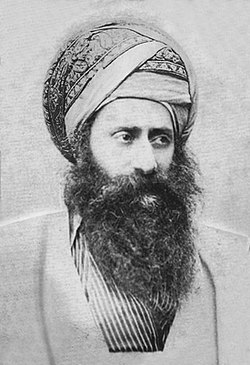
יוסף חיים מבגדאד – הבן איש חי
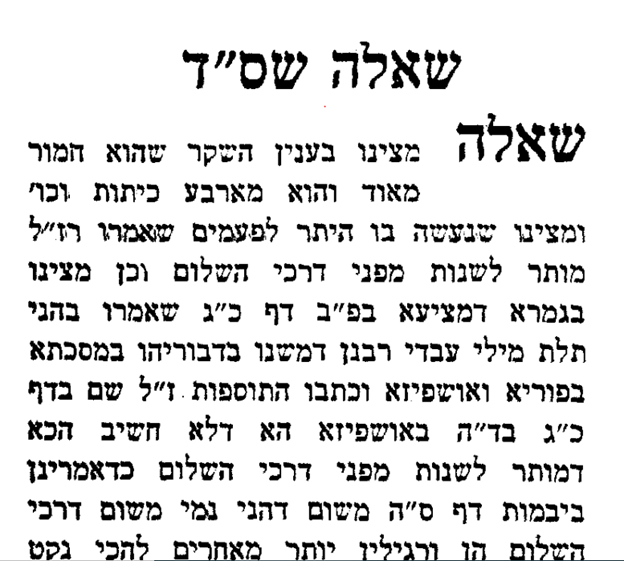
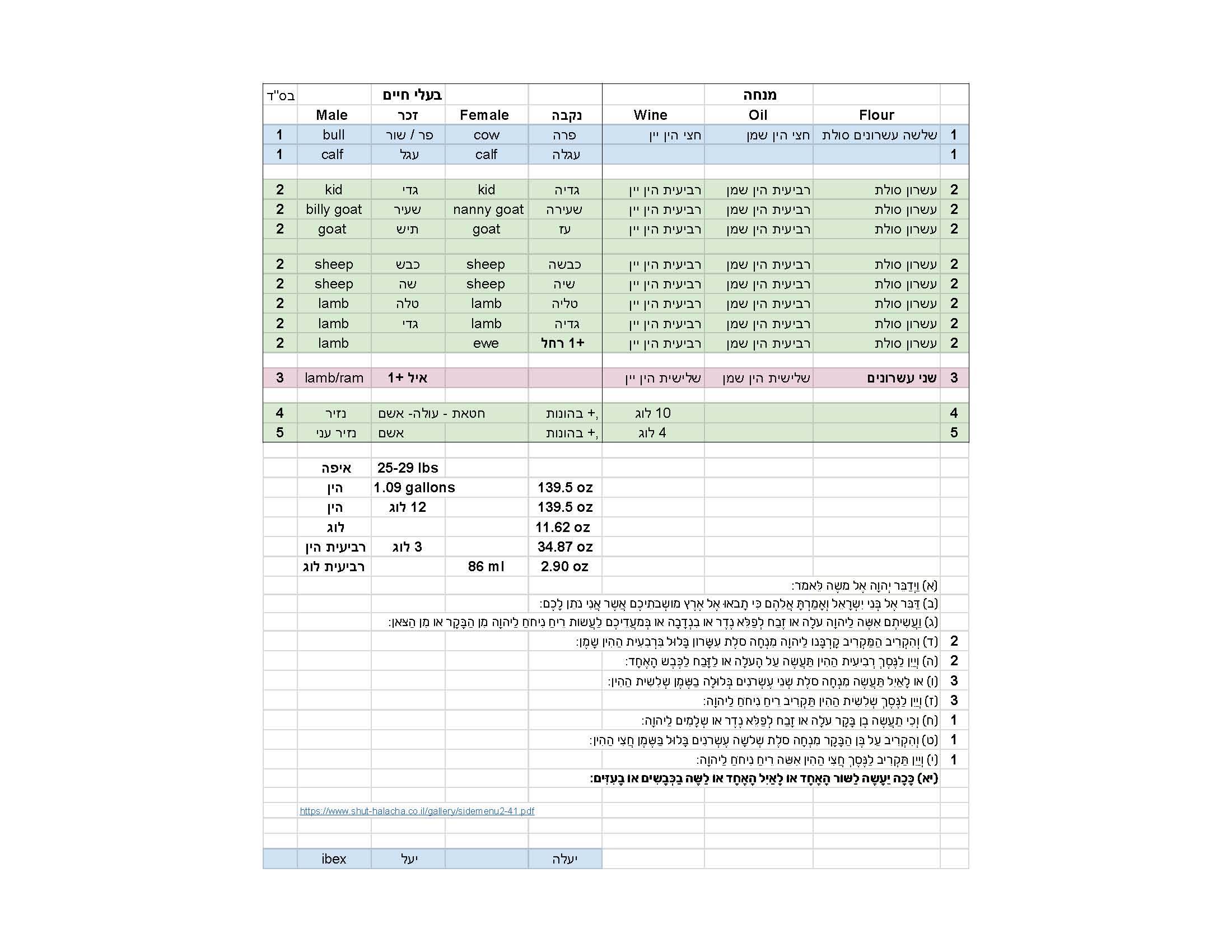

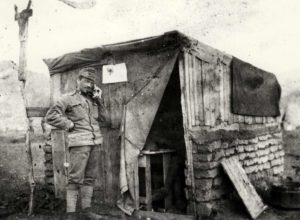
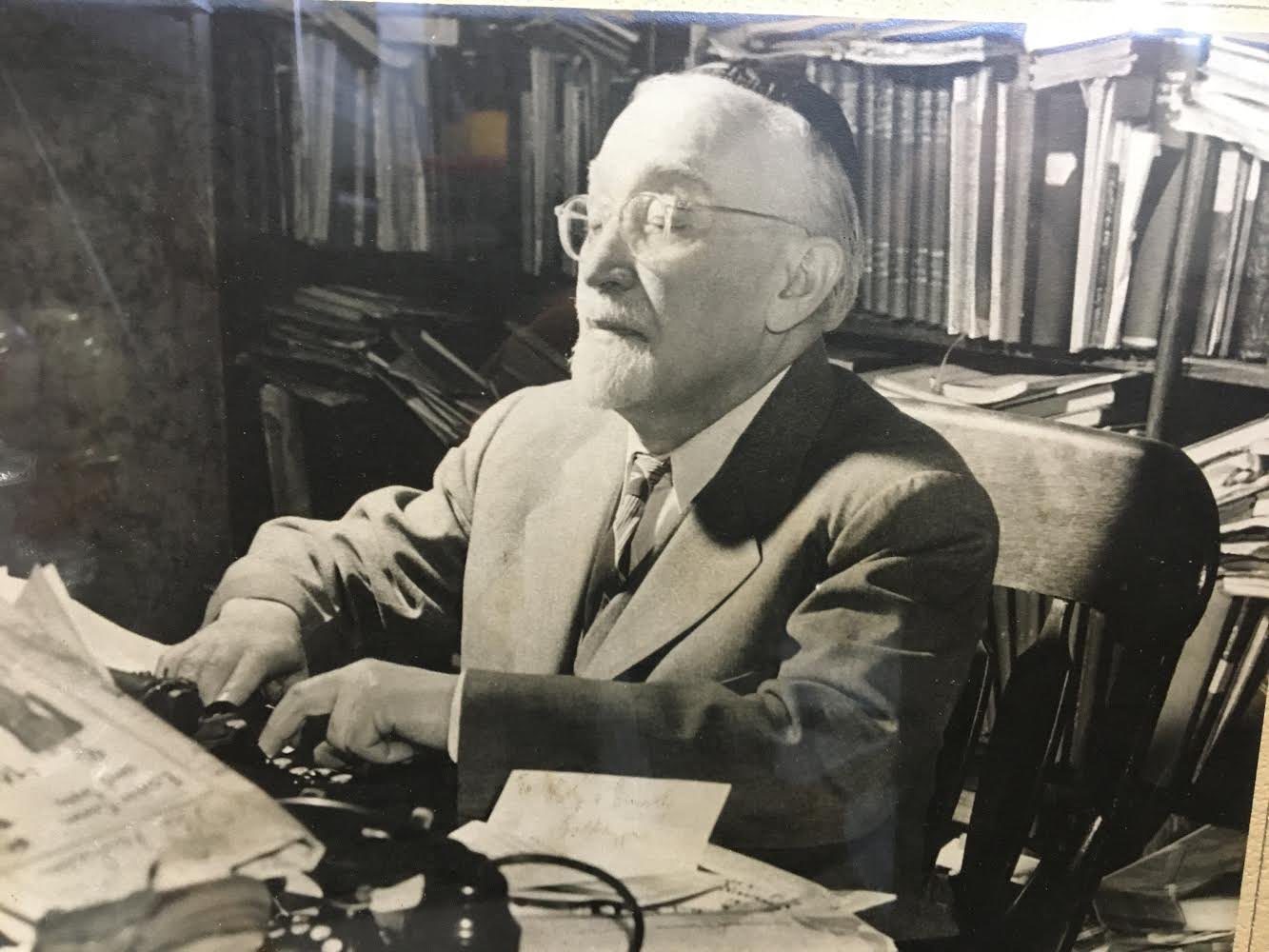
.jpg)


